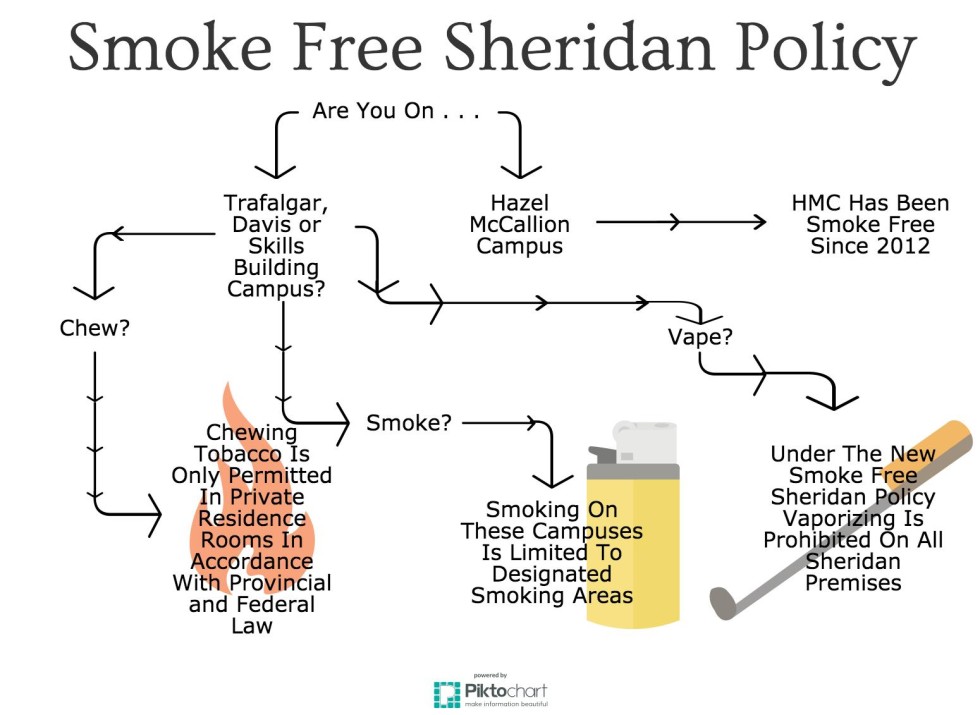PHOTO AND STORY BY DANIEL MALLETT
The policy that was intended to ban smoking on all Sheridan campuses has been edited with considerable changes.
The original policy was approved in September 2012 and was updated on Sept. 15, 2015, though it wasn’t posted online until this week.
Under the original policy, tobacco smoking was limited to designated smoking areas with the ultimate goal of making Sheridan campuses entirely smoke free by September of 2015.
Hazel McCallion Campus went smoke free in 2012.
This did not happen and smokers can still be seen at most designated smoking areas.
The new policy eliminated a solid date for an all-out smoking ban instead stating vaguely that “Smoking will be prohibited in or on all Sheridan premises in the future.”
George Georgopoulos, the manager of Occupational Health and Safety at Sheridan says the college was not prevented from going smoke free in September.
Instead the Occupational Health and Safety Services decided that a truly smoke free campus had to be something the community wanted.
“Its way more effective if it comes from a grassroots movement.” said Georgopoulos.
The policy will be an upcoming subject for the Sheridan Insider, a community newsletter run by the college.
Georgopoulos said “We’re going to follow up with the student union to get it out to students.”
The new policy also immediately banned all use of vaporizers on Sheridan College campuses in or on Sheridan premises.
Vaporizers are becoming more and more popular among both smokers and those trying to quit smoking cigarettes.
The policy has not been well advertised but it is available to view on Sheridan’s Occupational Health and Safety website.
Because the new policy is little known students and staff may violate it unintentionally.
Banning vaporizers without notifying staff and students may result in them accidentally breaking the new rules which can land students with non-academic sanctions and employees with disciplinary action according to the policy.
A lot of young adults begin smoking at college to fit in or to cope with stress.
Smoking is particularly prevalent in young Canadian adults with age groups 20-24 and 25-34 making up 17.9 per cent and 18.5 per cent of those respective populations according to a study by the Propel Centre for Population Health Impact at the University of Waterloo.
This is why many Canadian colleges and universities, such as Dalhousie University and the University of Alberta, have set up smoke free campus projects.
Non-smokers’ health is also a concern when considering a smoke-free campus policy.
According to the same study from the University of Waterloo, 12.9 per cent of Canadians reported being exposed to second-hand smoke every day or almost every day.
Second-hand smoke is dangerous and contains chemicals that are unhealthy and hurt smokers and non-smokers alike.
Sheridan’s Occupational Health and Safety Services is in charge of the Smoke Free Sheridan Policy and is responsible for interpreting and applying the policy on Sheridan campuses.
MORE RELATED TO THIS STORY:
- Tougher rules push smokers to the curb
- Ending your toxic love affair
- Student quits to win 2500 prize
